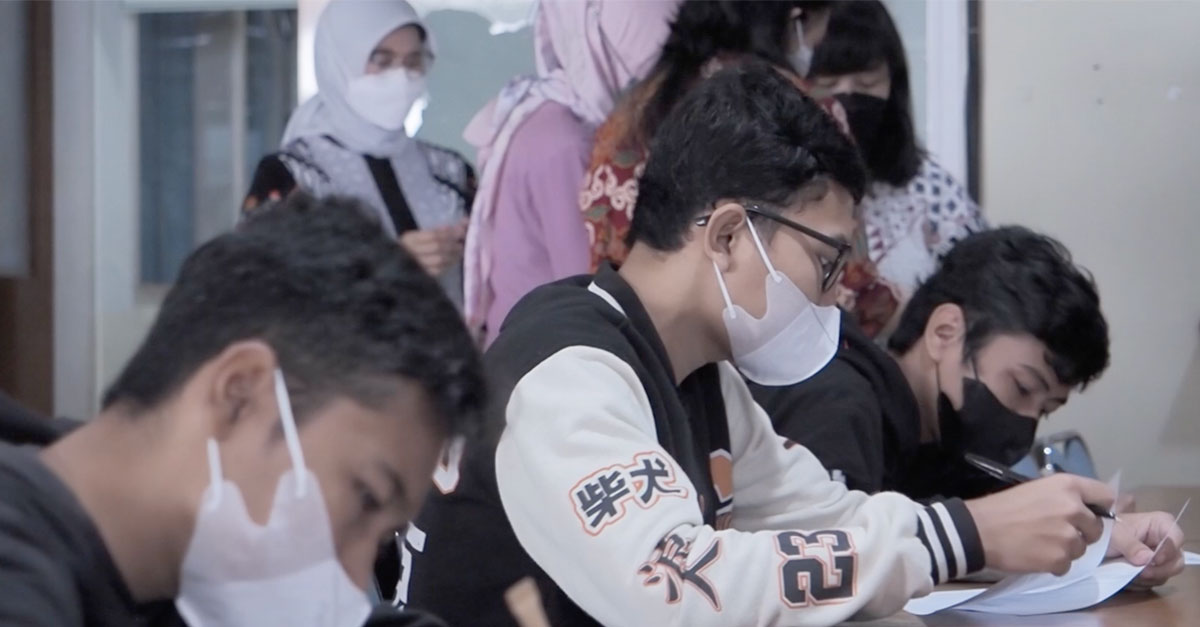The team that took part in the five-day visit was comprised of Cesar Garrido, WFH President; Glenn Pierce, MD, PhD, WFH Vice President, Medical; WFH USA board member Mark W. Skinner; and Assad Haffar, MD, WFH Medical & Humanitarian Aid Director. They met with several different stakeholders during the visit and learned about the impact the WFH Humanitarian Aid Program is having on PWBDs in the country.
During the visit, the team went to two HTCs: a facility in Bandung, and the largest HTC in Indonesia at the Dr. Cipto Mangunkusumo National Public Hospital in Jakarta. The team met with the comprehensive care teams at both facilities where they learned about the processes the HTCs use and exchanged knowledge. As part of the visits, the team evaluated how WFH Humanitarian Aid Program donations were being used in respect to the WFH Quality Management System (QMS), to ensure that utilization was being done in accordance with WFH Standard Operating Procedures (SOPs). The meetings with the comprehensive care teams also covered the unmet needs of the community, and what the WFH could do to help further increase standards of care.
The WFH Humanitarian Aid Program team also had the opportunity to meet with patients at the HTCs. The stories they heard were heartening. They learnt about the deep impact HA work is having on the bleeding disorders community, and about how prophylaxis for children and limb and life-saving surgeries are changing lives. The sponsor representatives were moved to hear the difference their donations are making on the lives of PWBDs in the country.
The next event on the agenda was a two-day training workshop attended by more than 35 healthcare practitioners (HCPs) from 12 Asian countries. The event helped to facilitate the exchange of information between HCPs in the region and identify the most important challenges that the communities are facing today. Participants also shared knowledge with the goal of helping each other improve care in their respective countries. During this meeting, the WFH Humanitarian Aid Program team pledged to continue to support countries in need as much as possible.
On the last day of the visit, the team met Azreal, a five-year-old boy with severe hemophilia A to understand the true impact of donations on the lives of patients. They learned about how donations are allowing him to go to school and live a normal life like other boys his age. To read the full account of Azreal’s story, please click here.
The WFH Humanitarian Aid Program team would like to thank everyone who helped make their Indonesia visit such a success. To watch a video of the visit, click here or watch it above.
Over 4 million IUs of factor were donated to Indonesia through the WFH Humanitarian Aid Program in 2022. Since 2015, 16.5 million IUs have been delivered. To find out more about the WFH Humanitarian Program, please click here.
About the WFH Humanitarian Aid Program
The WFH Humanitarian Aid Program improves the lack of access to care and treatment by providing much-needed support for people with inherited bleeding disorders in developing countries. By providing patients with a more predictable and sustainable flow of humanitarian aid donations, the WFH Humanitarian Aid Program makes it possible for patients to receive consistent and reliable access to treatment and care. None of this would be possible without the generous support of Sanofi and Sobi, our Founding Visionary Contributors; Bayer, CSL Behring and Roche, our Visionary Contributors; Grifols, our Leadership Contributor; and Takeda and Japan Blood Products Organization, our Contributors. To learn more about the WFH Humanitarian Aid Program, visit www.treatmentforall.org.













